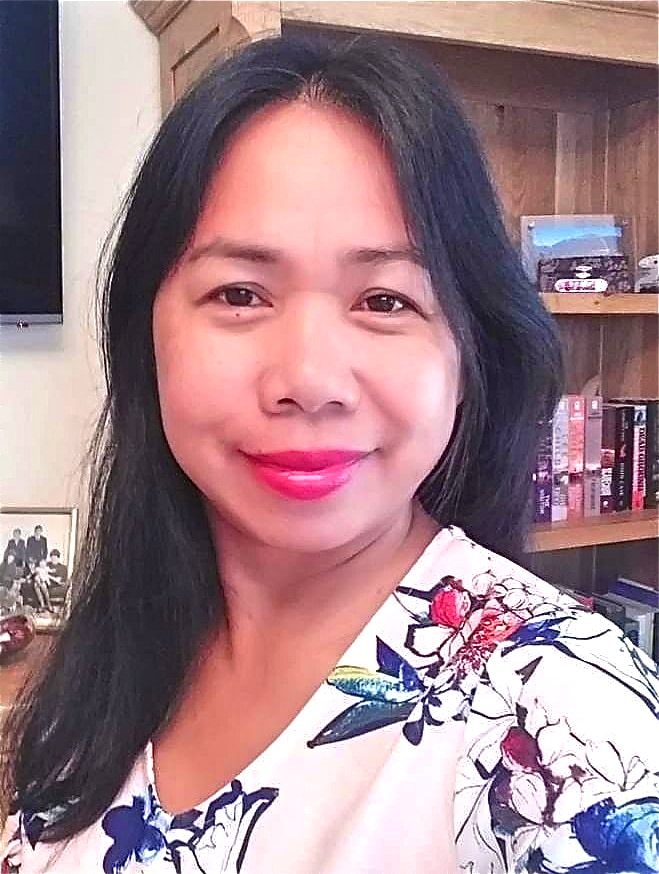
We are imperfect human beings,
We made mistakes,
But we always rise again.
We choose the road
we should go or should not go.
Sometimes we may need to bend the rules,
Sometimes we need to cross the line.
It is just enough
To feel we are alive
As it makes us
Who we really are.

aka Tekla
When Marites Palma aka Tekla was writing this poem, what she had in mind is that overseas workers can always choose their paths even though they are in a relatively vulnerable position while working abroad, by fighting for their rights or pursuing their interests and goals. “We can make decisions for ourselves which go along with our principles in life,” she said.
Setting up the Social Justice for Migrant Worker in 2019, she is determined to help migrants to seek social rights, recognise violations and stand up for themselves. The private Facebook page has now more than 17,000 members and the membership is growing every week. “I think it is because our members talk about it with their friends. And this group can really help them while we are promoting love, respect and care for everyone,” she said.
Together with other migrant rights groups, Tekla has recently helped hundreds of workers to claim the illegal training fees charged by employment agencies in Hong Kong and overseas. “The Philippine government says that domestic workers should not pay training fees or other fees extracted by unscrupulous agencies but the agencies still manage to collect money because they are deceiving their applicants. They do everything to cover up their illegal activities,” she said.
She believes these agencies are not heavily punished as some recruitment agencies were set up and backed by politicans in the Philippines who are interested in this kind of business for the big profit.
At present the group has put most of its efforts into helping migrants in quarantine or terminated workers who are in need of food and other essential things. It also helps terminated workers fight for their rights, such as long service payment or payment in lieu of unused holiday. From time to time, the group visits hospitalised compatriots and helps them to seek help from the Philippine consulate so that they can get more assistance.
Tekla came to Hong Kong in 2006. After undergoing journalism training, she became a regular contributor to the bi-monthly Filipino newspaper, The Sun. She was particularly concerned about migrant domestic workers suffering from different kinds of injustice and wrote reports to expose them. She believes it is especially important to let migrants know that sexual harrassment is unacceptable and they should not endure it for fear of losing their jobs.
Now she spends most of her time in writing for the Facebook page of her group to help members be aware of their rights.
The Philippine Overseas Labour Office gave an award to Tekla in March 2019 for her contribution to the Hong Kong migrant community.
On International Labour Day, she prays that all foreign domestic workers are treated as workers not slaves and given enough food and rest. She prays that agencies can stop charging illegal fees. She also prays that the Hong Kong government can abolish the two-week rule for workers after the contract ends, that the statutory minimum wage can be raised to five thousand dollars to catch up with inflation, and that workers who lost their jobs during hospitalisation can be given the same medical benefits as those with their working visas. She prays that the live-in requirement in the contract of foreign domestic workers can be scrapped as the policy has encouraged more abuses. SE










